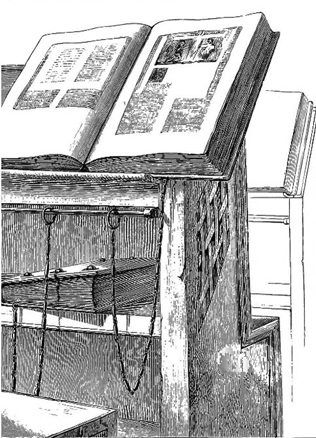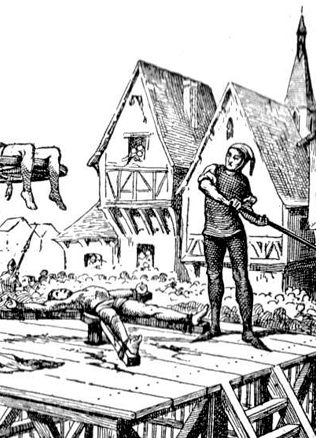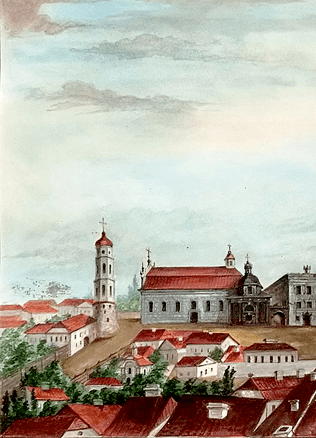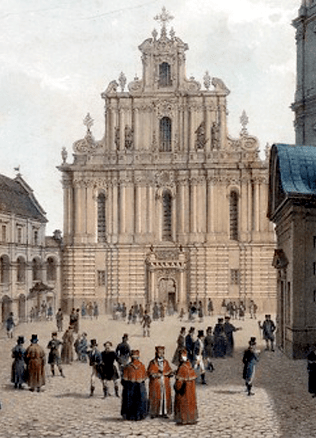The Union of Lublin, or why did the Lithuanians and Poles weep in Lublin?
Tears were not only the expression of emotions in the world of the medieval and the early modern periods. The kings and dukes, magnates and boyars shed tears in the historical sources copiously on different occasions. Even if one agrees with the theory that people of that time demonstrated their sensitiveness more openly than they do nowadays, there are no doubts that “tears in public” could have been a certain symbolic political demonstration. In 1323, Grand Duke Gediminas, closed himself in his bedroom and “wept” when the plan to adopt Christianity failed, and a hundred years later Jogaila and Vytautas “wept” loudly when they heard the decision of the King of Holy Rome Sigismund of Luxemburg on the boundaries of Samogitia that was unfavourable to them.
One of the more vivid “episodes of tears” in the history of Lithuania was the moment of the fatal negations over the union in the summer of 1569. The then leader of the Lithuanian delegation Jan Chodkiewicz, elder of Samogitia , in the presence of King Sigismund August and all the Poles and Lithuanians who gathered in Lublin delivered an eloquent speech following which, according to the contemporaries, all the members of the congress began to cry. Some shed tears of joy, others those of misery; however, these tears welcomed the new era. From the Union of Lublin adopted on July 1569, Poland and Lithuania started to live in a real, state union – the Commonwealth of the Two Nations.
Coexistence “out of necessity”? The contexts of the Union of Lublin
“
In the 14th – 16th centuries, the state unions ruled by one King or the same dynasty were a usual phenomenon of the political life of Europe.
The road towards the Union was complicated. Its history started in February and March of 1385 with the commitments of Grand Duke of Lithuania Jogaila to the magnates of Poland, which were fulfilled after Jogaila had adopted Christianity, married Princess Jadvyga and become King of Poland. Until 1569, this union remained the union of the two states, which was renewed in Horodle in 1413, in Grodno in 1432, and in Vilnius in 1499, and from the times of Grand Duke Vytautas from time to time it became a dynasty union when Lithuania was ruled by another Grand Duke though from the same family by origin. In the 14th – 16th centuries, the state unions ruled by one King or the same dynasty were a usual phenomenon of the political life of Europe. Lithuania’s grandees learned to live in the new political conditions very soon, the rulers from the Jagiellonian dynasty were content with the steady relations of the not so close union. However, in the 16th century the situation started to change gradually.
“
The expansion of the State of Moscow that began at the end of the 15th century did not only cut off a large quarter of the territory of the Grand Duchy of Lithuania but also undermined a traditional belief of Lithuania’s magnates in the stability of “the borders of the times of Vytautas”.
First of all, the international situation of the Jagiellonian states became more complicated. Unable to beat off the competition of the imperial dynasty of the Habsburgs, after 1529 the Jegiellonians lost the thrones of Hungary and the Bohemia. The expansion of the State of Moscow that began at the end of the 15th century did not only cut off a large quarter of the territory of the Grand Duchy of Lithuania but also undermined a traditional belief of Lithuania’s magnates in the stability of “the borders of the times of Vytautas”.
This expansion made Lithuania seek for military and financial support in Poland. There was the context of an economic union too. Under the conditions of growing foreign trade with Western Europe, the ports on the coats of the Baltic Sea attracted Lithuanian grandees more and more. Having made claims to the Livonian Ports (first of all to Riga), the Lithuanians encountered similar claims made by Moscow. Not only war over Livonia broke out.
“
The factor of Moscow’s intervention was the most important political premise of the Union of Lublin.
After a long break the army of Moscow appeared in the lands of the Grand Duchy of Lithuania, marching ever further up the country. The factor of Moscow’s intervention was the most important political premise of the Union of Lublin. A loss of Polock was a great blow to both the magnates of the Grand Duchy of Lithuania and to King Sigismund August. It was not only in Poland that the possibility of closer unionist relations with the Crown were started to be considered.
Cultural gravitation: A Pole and a Lithuanian on the eve of the Union of Lublin
The circumstances of the dynasty also played their role there. The rule of childless Sigismund August made the end of Jagiellonian dynasty ever more likely. The fact that the union between Poland and Lithuania was based only on personal and dynastic aspects posed danger to the continuity of the union. And neither side wanted to lose it. The Union was not merely a political agreement existing between the states. It was born, developed, continued or died as the history of co-existence or the hostility of the people and political nations.
“
The Union was not merely a political agreement existing between the states. It was born, developed, continued or died as the history of co-existence or the hostility of the people and political nations.
Therefore later generations of the nobility of Poland and the Grand Duchy of Lithuania remembered the history of the union of the 15th century first of all through the prism of heraldic fraternisation of Horolde when 47 families of the Polish noblemen accepted the relatives of the Lithuanian magnates. In this sense, a gradual rapprochement of the Polish and Lithuanian magnates and nobles took place during the 15th and the 16th centuries. Despite constant quarrels, during the epoch of common rulers, political, economic, and cultural cooperation between both countries strengthened: constant contacts between the Council of Lords of the Grand Duchy of Lithuania and the Polish senators became established, intensive correspondence was carried out and missions were exchanged, joint meetings took place more smoothly than before. The image of “a cunning Pole” found in the sources of the 15th century was replaced by the categories of a “brother” and a “friend” in Polish-Lithuanian correspondence of the 16th century.
“
The image of “a cunning Pole” found in the sources of the 15th century was replaced by the categories of a “brother” and a “friend” in Polish-Lithuanian correspondence of the 16th century.
From the end of the 15th century, ever more relatives of the Lithuanian magnates established marital relations with the Poles, and the years spent in the Ruler’s court in the young days and common military campaigns strengthened these relations in the life of the court and everyday military life. All that developed the understanding of “common welfare” (res publica) though this conception could mean both the affairs of Lithuania and those of both unionist states. During the time of forming the Union of Lublin the Polish language was the everyday language of the grandees of the Grand Duchy of Lithuania, disputes at the Sejm of Warsaw and Lublin were held in the Polish language. This, however, did not interfere with understanding and using the same Polish-Latin political concepts in a different meaning.
The historical verdict: was it worth shedding tears over Lublin?
In Lublin, the people who knew one another very well, argued heatedly over the conditions of the Union. The speech delivered by John Chodkiewisz that moved the grandees encouraged them to seek for the ultimate compromise. After that everything went on rapidly. After both sides had come to an agreement, a new unionist agreement and a new political formation were born – the Commonwealth of the Two Nations. Following the stormy and stressful negotiations life took its normal course again, the Poles and the Lithuanians adapted themselves to the new conditions quite soon, and the chroniclers of that time mentioned the Union merely as one of the important events of that period. Neither Maciej Stryjkowski (lit.) Motiejus Stryjkovskis nor Albertas Vijūkas-Kojalavičius (pol. Wojciech Wijuk-Kojałowicz) had any disagreements about the date of 1569. The Lithuanian political elite found new forms of political and legal life in the real union during the first decades after the Union of Lublin: the Supreme Tribunal of Lithuania was established, the Third Statute of Lithuania was adopted. Using the language of political symbols the special status of the Grand Duchy of Lithuania and its citizens was established in the same July of 1569, after the Polish Crown (corona regni) had been declared to be ownership of the Lithuanian nation too. The unilateral and ideologised assessment of the Union appeared on the pages of the books written by the historians of the 19th – the 20th centuries. It was then that it was forgotten that the document of the Union was in essence a compromise agreement, that a long and successful period of co-existence followed the difficult negotiations in Warsaw and Lublin.
“
The unilateral and ideologised assessment of the Union appeared on the pages of the books written by the historians of the 19th – the 20th centuries.
The most eloquent sayings of the envoys of both countries were accentuated in describing the Union: the words of the Treasurer of the Crown Walenty Dembiński about the Grand Duchy of Lithuania as the “new Poland”, the remark of the representative of the Grand Duchy Andrzej Wolan that the Poles wanted to leave only Eišiškės and Maišiagala to the Lithuanians. The atmosphere of the negotiations was lumped together with the history of the Union and gave rise to the forthright assessment of the Union (“tears” of both the Poles and the Lithuanians): it was a supposed victory for the former and a painful loss of the statehood and the “end of history” for the other. Looking at this history from a later perspective one can calmly state that the Union of Poland and Lithuania that existed in different forms for four hundred years was a successful political solution that justified itself and that allowed each country to decide its political future by itself.
Rimvydas Petrauskas



